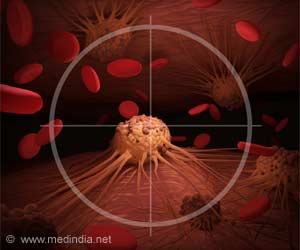- New artificial intelligence (AI)-based deep learning technology has been developed
- This technology can detect lung cancer faster and more accurately than experienced radiologists and make diagnosis easier
- It has the potential to save the lives of many lung cancer patients
Etemadi’s collaborator was Shravya Shetty, who is a Senior Staff Software Engineer and Engineering Manager at Google, Mountain View, California, USA. The corresponding author on the paper was Dr. Daniel Tse, MD, who is a Product Manager at Google Brain, San Francisco, USA.
Read More..
How Does the Deep Learning System Work?
Deep learning, also known as deep structured learning or hierarchical learning, is a type of machine learning technique that involves artificial neural networks. It teaches computers how to learn by example. In the present study, the power of deep learning technology was harnessed for automated evaluation of images for early diagnosis of lung cancer, enabling prompt treatment.The deep learning system was used for evaluating LDCT scans of de-identified patients with biopsy-confirmed lung cancer and its accuracy and efficiency was compared to that of experienced radiologists. In most instances, the precision of the new technology was equal to or better than that of the radiologists.
The deep learning system used a primary CT scan and a prior CT scan of the patient’s lungs for comparison purposes, so that the chances of occurrence of malignant lung cancer could be accurately predicted. This novel technology not only identifies a region of the scan that looks highly suspicious, but also predicts the likelihood of whether the region could undergo malignant transformation, leading to full-blown lung cancer.
Study Procedure
The deep learning model was developed by scientists at Google, while the complex and highly customized software was engineered by Etemadi’s group.The salient features of the study procedure are briefly highlighted below:
- 6,716 de-identified LDCT scans were used for the analysis
- The LDCT scans were obtained from Northwestern Medicine’s Electronic Data Warehouse
- The LDCT scans enabled validation of the accuracy of the deep learning system
- The AI-powered technology detected even very tiny malignant lung nodules
Study Findings
The major findings are highlighted below:- The deep learning technology exhibited high specificity and sensitivity for detecting lung cancer upon first-time screening
- The deep learning technology produced lesser numbers of false positives and false negatives
- Fewer false positives or negatives mean better diagnostic efficacy and fewer missed tumors
- The deep learning technology outperformed six radiologists when prior LDCT scans were available and were as good as the radiologists when the prior scans were unavailable
- The technology enables doctors to emphatically say whether a patient has lung cancer or not
- The technology prevents unnecessary invasive follow-up procedures such as lung biopsies, which are not only risky, but also costly
“AI in 3D can be much more sensitive in its ability to detect early lung cancer than the human eye looking at 2D images. This is technically ‘4D’ because it is not only looking at one CT scan, but two (the current and prior scan) over time. In order to build the AI to view the CTs in this way, you require an enormous computer system of Google-scale. The concept is novel but the actual engineering of it is also novel because of the scale.”
Lung Cancer: Facts & Figures
- Lung cancer is the most common cause of cancer-related death in the US
- 160,000 lung cancer deaths occurred in 2018 in the US
- Chest screening can detect lung cancer and reduce mortality rates, as per clinical trials in the US and UK
- Limited access and high error rates of chest screening results in lung cancer detection at advanced stages
- Treatment of lung cancer is much more difficult at advanced stages
Concluding Remarks
Although AI-based technology still needs to be evaluated in large-scale clinical trials, it nevertheless has the potential to significantly improve the management and outcome of lung cancer patients.“This area of research is incredibly important, as lung cancer has the highest rate of mortality among all cancers, and there are many challenges in the way of broad adoption of lung cancer screening,” says Shetty. “Our work examines ways AI can be used to improve the accuracy and optimize the screening process, in ways that could help with the implementation of screening programs. The results are promising, and we look forward to continuing our work with partners and peers.”
Reference:
- End-to-End Lung Cancer Screening with Three-dimensional Deep Learning on Low-dose Chest Computed Tomography - (https://aitopics.org/doc/news:86DCA4FF/)
Source-Medindia















